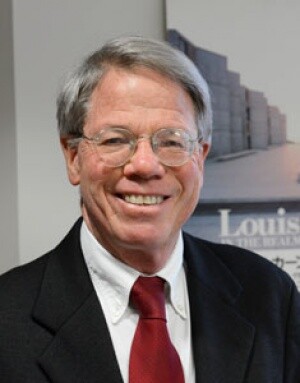Penn Helps Secure World Heritage City Designation for Philadelphia
The Organization of World Heritage Cities has voted to name Philadelphia as a World Heritage City. With the announcement, Philadelphia became the first American city to join an elite group that includes Paris, Cairo and Jerusalem.
The idea to have Philadelphia named a World Heritage City was first sparked by a casual conversation in 2012 between Richard Hodges, former director of the University of Pennsylvania Museum of Archaeology and Anthropology, and John F. Smith III, chair of the Global Philadelphia Association.
The Association developed a bid and led a successful two-year effort with the input of city government, business and community leaders including representatives of the University of Pennsylvania.
Penn President Amy Gutmann serves on the board of the Philadelphia World Heritage Committee, which led the effort to petition the Organization of World Heritage Cities for the honor. David Brownlee, professor in the School of Arts & Sciences’ History of Art Department, served on the Executive Committee and Project World Heritage Working Group. The Penn National Resource Centers and the Penn Museum were among the very first members of the Global Philadelphia Association.
Brownlee wrote much of the material that was presented to the Organization of World Heritage Cities detailing Philadelphia’s attributes, including the city’s history as the birthplace of the United States, its significant historical sites and architecture and the city’s contributions to arts and culture.
Independence Hall and two Penn buildings, the Frank Furness-designed Fisher Fine Arts Library and the Richards Medical Research Building, designed by Louis Kahn, are among Philadelphia’s 67 locations designated as National Historic Landmarks.
“There’s history in every corner of the five-county Philadelphia area,” Brownlee said. “There’s history in every era, there’s history in every diverse population of people from all over the world who have lived and now live today in Philadelphia and contribute to a broader message of the significance of Philadelphia.”
The cachet of the World Heritage Cities designation is expected to help boost tourism and promote economic development, but Brownlee hopes it will also spur historic preservation efforts in the city.
Anastasia Shown, an outreach consultant for Penn’s Middle East Center and South Asia Center and a member of the Board of Directors for the Global Philadelphia Association ,said Penn’s partnership with the Association helped promote public programs at Penn and in turn, helped Global Philadelphia recruit more members.
"Our Summer Institute, World Heritage Tool Kit and upcoming World Heritage Workshop aim to share this good news about the World Heritage designation with schools and teachers,” Shown said. “So that young Philadelphians can celebrate our recognition and connect more to the world.”








